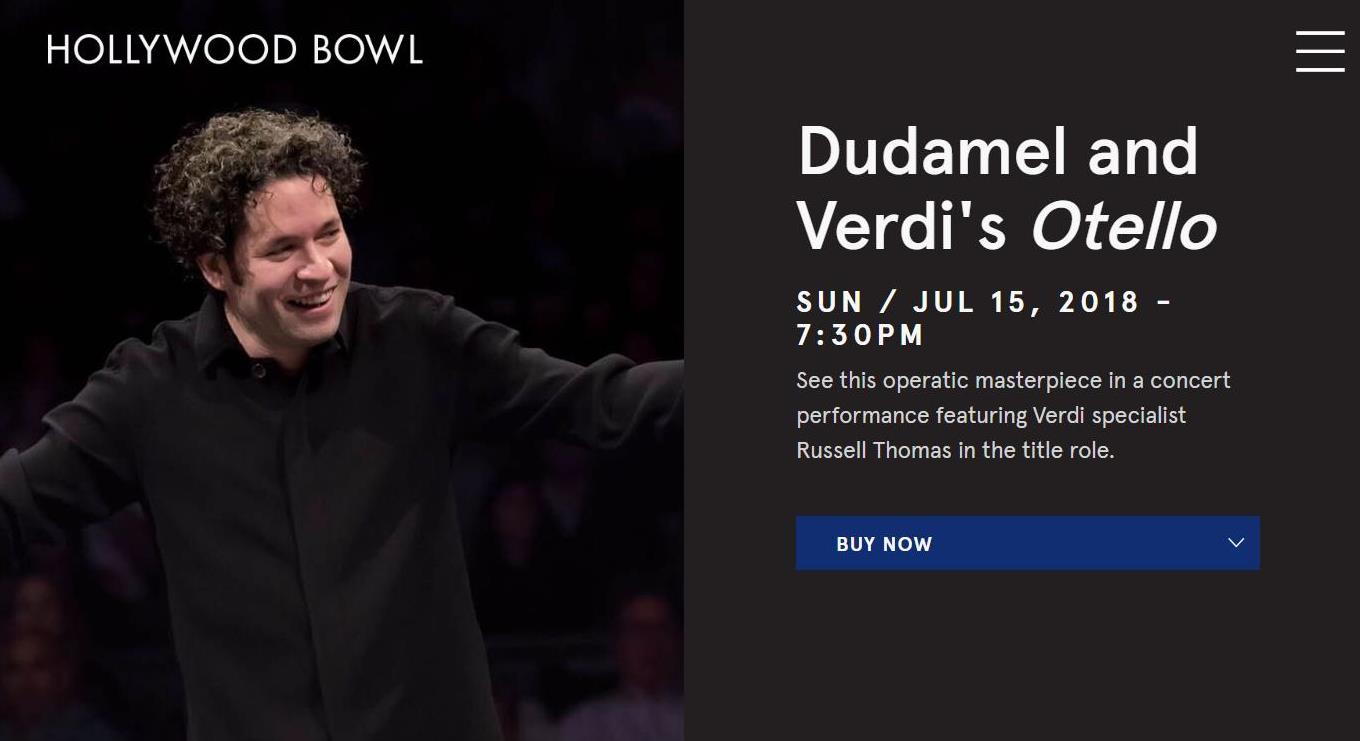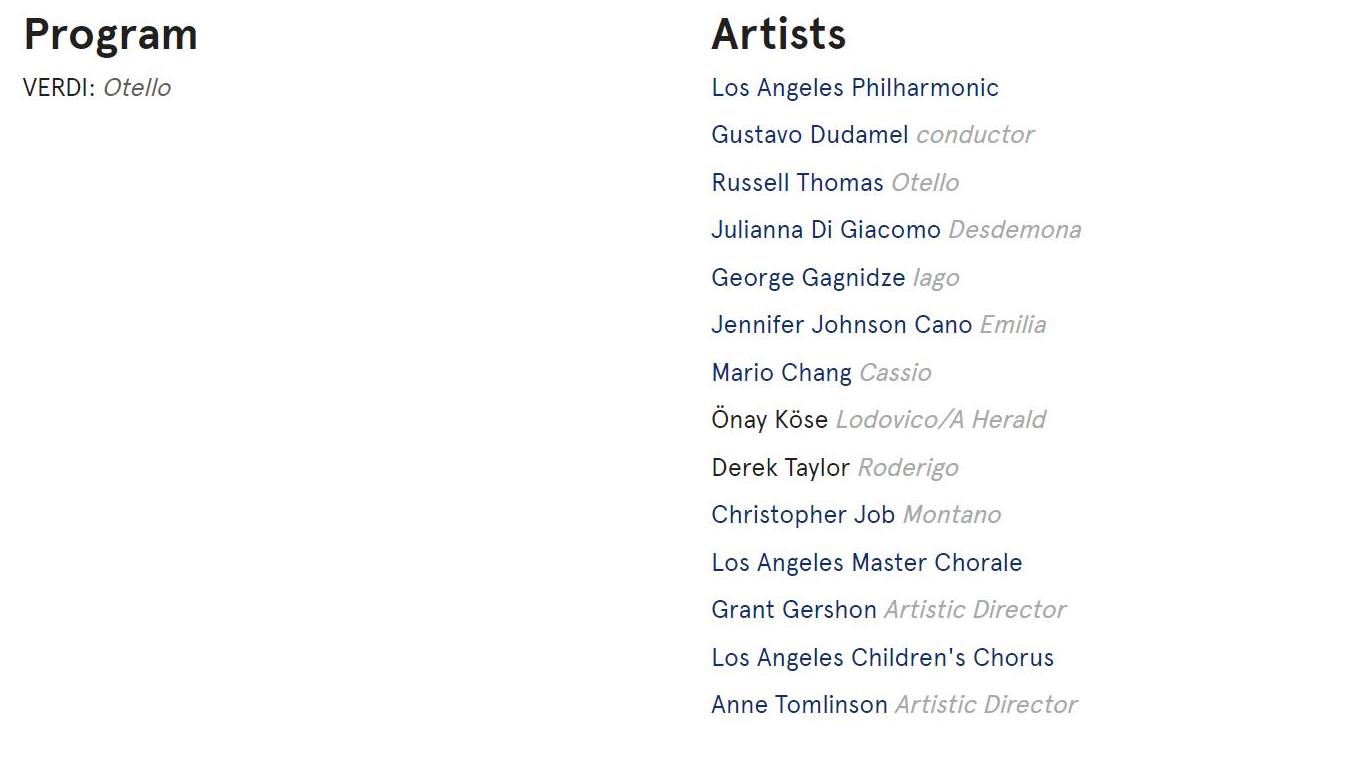Dudamel Conducts a Forceful 'Otello' at the Bowl
/By Truman C. Wang
7/18/2018
Strictly speaking, the Hollywood Bowl is not an ideal venue for opera. Its over-amplified sound system and lack of natural acoustics (like the Arena di Verona, where no amplification is needed) can turn bantamweight voices into heavyweights with a corresponding loss of musical details. Opera connoisseurs, as a rule, do not like such outdoor electronic amplifications unless it’s a gala type of concert, where the aim is to entertain and overwhelm the senses.
For the Sunday performance of Verdi’s Otello, the sound engineers clearly flattered the dynamic conducting of Gustavo Dudamel. The results were some incredibly exciting passages (Act I storm scene, Act II vengeance duet “Si pel ciel”, Act III ensemble with the resplendent trumpets). Unfortunately, for every such great moment, there were many more unsatisfactory passages, such as the tepid thrice-kiss motif in the Act I love duet, the heavy-footed Act 3 ‘eavesdropping’ trio, and the numerous parlante duets and ariosos where the intricate orchestral details got lost amongst the loudspeakers. Under the circumstances, principal cello Robert deMaine did his best to inject a semblance of romance into an essentially loveless love duet.
The singers were also pumped up as if on sonic steroids. The Otello of Russell Thomas, a suave Cavaradossi in L.A. Opera’s “Tosca” last season, sounded tense and bottled-up in the love duet in an ill-advised attempt to darken and enlarge his voice. His newness to the role also showed in the failure to project nuanced accents in Otello’s responses to Iago and Desdemona in their respective scenes together.
Soprano Julianna Di Giacomo’s Desdemona had more spunk and fire than most, able to rise up to the challenges of her male abusers. Her voice soared thrillingly in the Act III ensemble, and poignantly and affectingly in the ‘Willow Song’ and ‘Ave Maria’.
Baritone George Gagnidze gave the finest singing as Iago, more sardonic than demonic perhaps, but always dramatic and true to character – a singer-actor with exemplary diction and fluid belcanto style. A huge man with a huge voice, Gagnidze was the only singer in the cast who actually tried to sound small and nimble.
Other notable mentions in the cast were tenor Mario Chang’s superbly lyrical Cassio and Onay Kose’s authoritative Senator Lodovico. The L.A. Master Chorale managed to sound brilliant in the storm scene and delicate in the Act II serenade (to which the L.A. Children’s Chorus added much enchantment).
In the concert format, “Otello” suffers too many compromises that detract from the drama. When in Act III, the raving-mad Otello shouts “A terra…e’ piangi!” and throws Desdemona to the ground, to the horror of the visiting Venetian dignitaries, and the disgraced Desdemona sings, “a terra…si’, nel livido”, it is hard to feel the drama without the violent physical actions and the visual of a prostrate Desdemona. As it is, the LA Phil’s concert presentation of “Otello” triumphed over its technical limitations and sent the happy audience home humming the big tunes.
Truman C. Wang is Editor-in-Chief of Classical Voice, whose articles have appeared in the San Gabriel Valley Tribune, the Pasadena Star-News, other Southern California publications, as well as the Hawaiian Chinese Daily.



